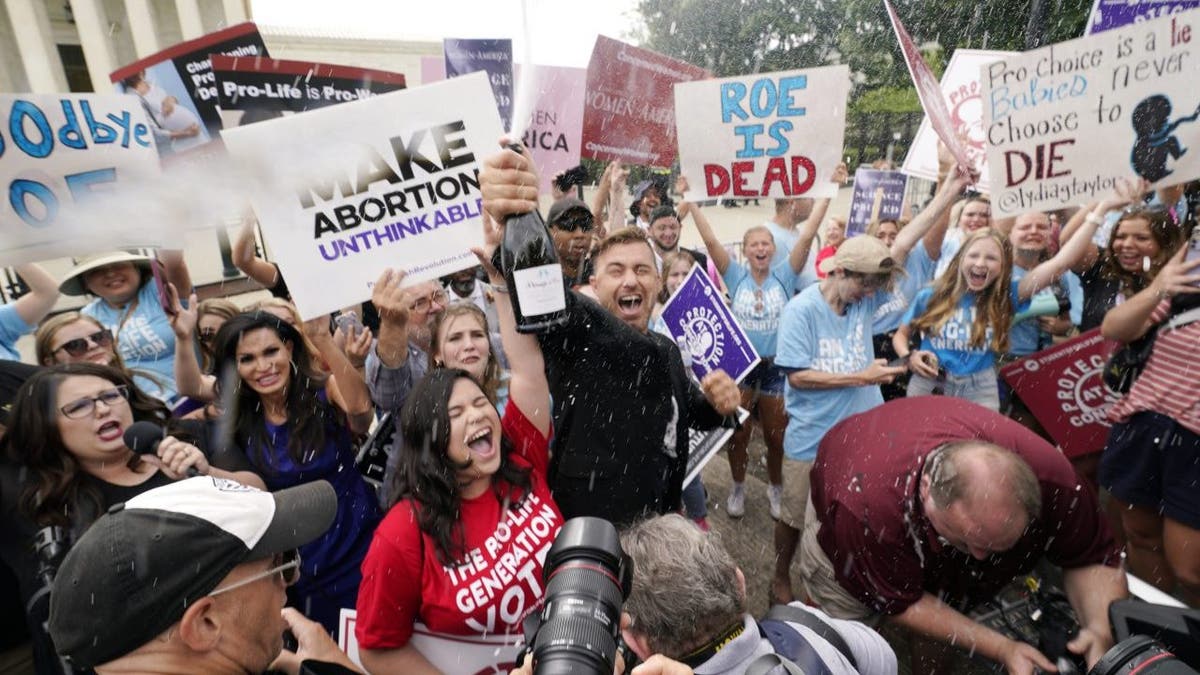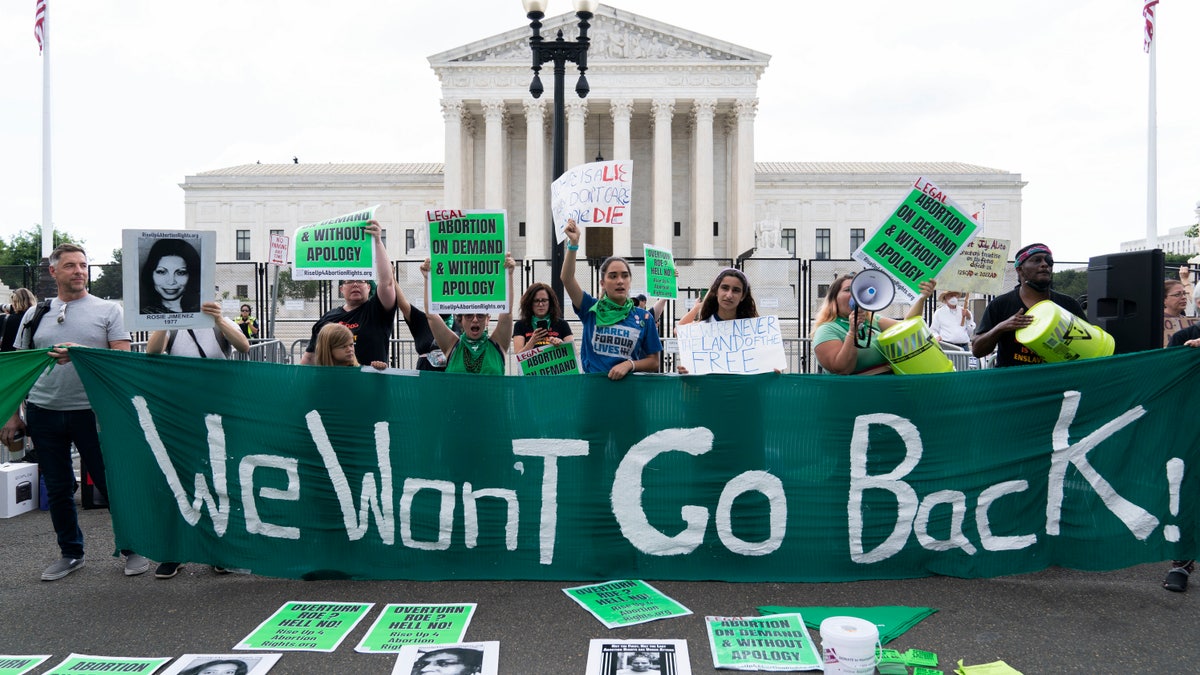Threat to Supreme Court justices not being taken seriously enough: Baker
'WSJ at Large' host Gerry Baker voiced concern on ‘Your World’ about lawmaker’s failure to boost security for Supreme Court justices.
As the Supreme Court overturned Roe v Wade, Chief Justice John Roberts agreed with the majority in upholding a Mississippi law restricting abortion, but wanted to stop short of overturning Roe itself.
The high court ruled 6-3 in Dobbs v. Jackson Women’s Health Organization, to uphold a Mississippi law that banned abortion after 15 weeks of pregnancy. The Republican-led state of Mississippi asked the Supreme Court to strike down a lower court ruling that stopped the 15-week abortion ban from taking place.
However, while concurring with the majority in upholding the Mississippi law, Roberts was critical of his colleagues in taking the additional step of overturning both Roe and the 1992 Casey v Planned Parenthood decision.

Pro-life advocates celebrate, Friday, June 24, 2022, outside the Supreme Court in Washington. The Supreme Court has ended constitutional protections for abortion that had been in place nearly 50 years, a decision by its conservative majority to overturn the court's landmark abortion cases. (AP Photo/Steve Helber)
"We end this opinion where we began. Abortion presents a profound moral question. The Constitution does not prohibit the citizens of each State from regulating or prohibiting abortion. Roe and Casey arrogated that authority. We now overrule those decisions and return that authority to the people and their elected representatives," Justice Samuel Alito wrote in the court's opinion.
But Roberts, in his separate concurrence, said he would take "a more measured course."
He faults Roe and says its "viability" standard -- whereby a woman is said to have a right to an abortion until the fetus is deemed to be able to survive outside the uterus -- set by Roe should be discarded ("That line never made any sense") and the right to an abortion "should therefore extend far enough to ensure a reasonable opportunity to choose, but need not extend any further -- certainly not all the way to viability."

Pro-choice protesters gathered outside the Supreme Court in Washington, Friday, June 24, 2022. (AP Photo/Jose Luis Magana)
Roberts later says that "the viability rule was created outside the ordinary course of litigation, is and always has been completely unreasoned, and fails to take account of state interests since recognized as legitimate."
He also describes the Alito opinion as "thoughtful and thorough" but adds that "those virtues cannot compensate for the fact that its dramatic and consequential ruling is unnecessary to decide the case before us."
MORE THAN 2 DOZEN STATES TO RESTRICT ABORTIONS AFTER ROE V. WADE OVERTURNED
"None of this…requires that we also take the dramatic step of altogether eliminating the abortion right first recognized in Roe," he says.
He believes there is a middle ground that sees the viability standard rejected without overruling Roe itself.
"Here, there is a clear path to deciding this case correctly without overruling Roe all the way down to the studs: recognize that the viability line must be discarded, as the majority rightly does, and leave for another day whether to reject any right to an abortion at all," he says.
In his majority opinion, Alito appears unpersuaded by the chief justice’s third way, declaring that there are "serious problems with this approach, and it is revealing that nothing like it was recommended by either party" in the case.
Alito accuses Roberts’ concurrence of a "failure to offer any principled basis for its approach" and of doing "exactly what it criticizes Roe for doing: pulling ‘out of thin air’ a test that ‘[n]o party or amicus asked the Court to adopt.’"
"While the concurrence is moved by a desire for judicial minimalism, ‘we cannot embrace a narrow ground of decision simply because it is narrow; it must also be right,’" Alito says, citing Robert’s own words in the 2010 Citizens United case.
CLICK HERE TO GET THE FOX NEWS APP
Alito also argues that it would not necessarily make the decision any less disruptive to the country, saying the course would be "fraught with turmoil" until it answered the question Robert’s concurrence would delay.
"In sum, the concurrence’s quest for a middle way would only put off the day when we would be forced to confront the question we now decide. The turmoil wrought by Roe and Casey would be prolonged," Alito says. "It is far better—for this Court and the country—to face up to the real issue without further delay."
Fox News' Ronn Blitzer contributed to this report.















































